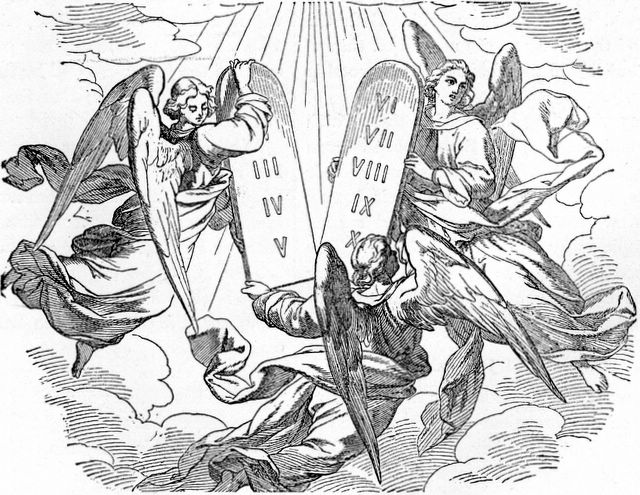The Word Spoken by Angels
The Hebrew author made many statements which would have been easily recognizable to Jews of that time but are largely missed today. One of those statements is made in what we know as chapter two verse two. This blog post examines that statement, looks at the contemporary view, and digs a little more deeply into the text to uncover the author’s intent.
One of the key tenants of the Jewish faith was the covenant God made with the Jewish nation at Mt. Sinai. In this covenant, God gave Moses the law, and the nation of Israel agreed. Moses “seals the deal” by sprinkling the people with blood. The Hebrew author takes great care to point out that the new covenant which Jesus established is superior to that one.
Many of the statements the author makes when illustrating this point are obvious to people who study Hebrews. It is even obvious to most that the Hebrew author often quotes scripture to support his arguments. What is not so commonly known is the fact that the author of Hebrews makes many informal references to things the Jewish people took for granted.
For example, the Jewish people recognized the fact that angels helped God provide Moses the Law. Moses himself acknowledged that was the case (Deuteronomy 33:2). The Psalmist reiterated this fact (Psalms 68:17). Stephen mentioned it in the first Gospel sermon (Acts 7:38). Paul even wrote about it (Galatians 3:19).
Jews of the day would clearly know what “the word spoken by angels” meant. They focused on what we call “the Pentateuch” – the first five books of our Bible. Their studies were intensive. The Jews had what we today call commentators and preachers too. Based on what Moses himself wrote, the Jews would have accepted that angels helped God give Moses the law.
Today it is all too easy for us to miss this reference. In verse two of chapter two the author refers to “the word spoken by angels.” Some translations say “the message spoken by angels” but the meaning is the same. When we read Hebrews 2:2 today it is easy for us to assume that the author was making a continual statement. After all, we know that there were not “chapters” and “verses” as we know them today. It is natural for us to think the author meant the gospel message. The author has just noted the fact that angels in Heaven have a particular message about Jesus (Hebrews 1:13). This interpretation is applicable for us today.
We also do need to think about this through the lens the author intended. Remember that he was writing to Jews. The Jews revered the law of Moses. They were intimately familiar with its origin. When the author referred to “the word spoken by angels” he was making a reference to something the Jews would immediately recognize. In doing so, the author is setting himself up to prove to the Jews the superiority of Jesus.
When the Hebrew writes about “the word spoken by angels” he is not making an internal reference to his own letter. He is not concerned about establishing continuity for future generations. When the Hebrew writer says “the word spoken by angels” he is making a clear reference that the Jews would understand.
